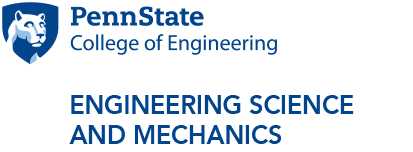Use of Functional Soft Materials and 3D Printing for Conformable and Patient Specific Treatment of Cardiac Disease
Abstract: Developing devices for diagnosis and therapy of cardiac disease presents a variety of unique engineering challenges. Complex hemodynamics, large ventricular deformations, and the interplay of a variety of anatomic structures make the heart a difficult environment to deploy medical devices. Considerations, such as the risk of device generated blood clotting and associated strokes requires attention to the materials and surface properties. In addition, today, most devices are delivered via minimally invasive catheter. This adds a unique constraint that most devices should be able to fit or fold within a small diameter catheter sheath, typically on the order of two to five millimeters in diameter. The Dunham Lab has been exploring novel ways to utilizing 3D printing, patient-specific design, bioinspired surfaces, soft robotics, and stretchable electronics to develop solutions for a variety of cardiac disorders. Dr. Dunham will describe research on hemodynamic characterization of Coronary Ischemia using mechanically realistic 3D printed models and validation against clinical data. In addition, he will describe a variety of devices for the evaluation and treatment of cardiac arrhythmia, particularly Atrial Fibrillation. These include a patient-specific left atrial appendage occluder with bioinspired features and a soft robotic sensing array for cardiac mapping. Dr. Dunham will describe the details of these devices as well as a variety of broader considerations when developing technological innovations in the cardiac environment.
Bio: Dr. Dunham is an Assistant Professor of Electrical Engineering in the Department of Radiology at Weill Cornell Medicine and member of the Dalio Institute for Cardiovascular Imaging, where he co-leads the engineering group. Dr. Dunham obtained his PhD from the University of Illinois, Champaign-Urbana and completed his postdoc at Georgia Tech. While most of his academic training focused on development of semiconductor nanomaterials and other forms of non-traditional fabrication, since joining the faculty at Weill Cornell Medicine, his research has shifted considerably: today, his focus is on unique ways to leverage these and other cutting edge technologies for medical research and device design.
Media Contact: Ashley Cecil



